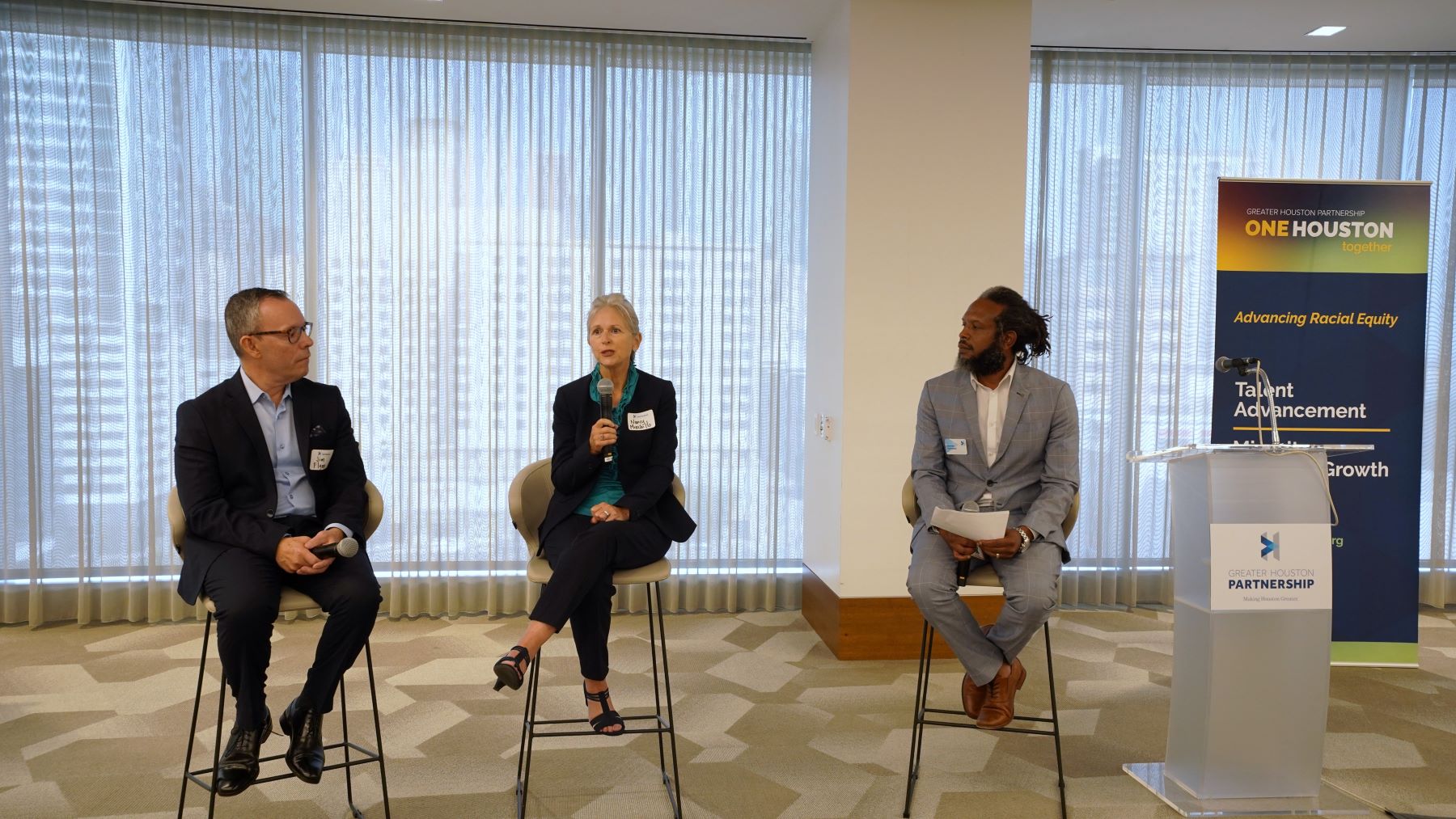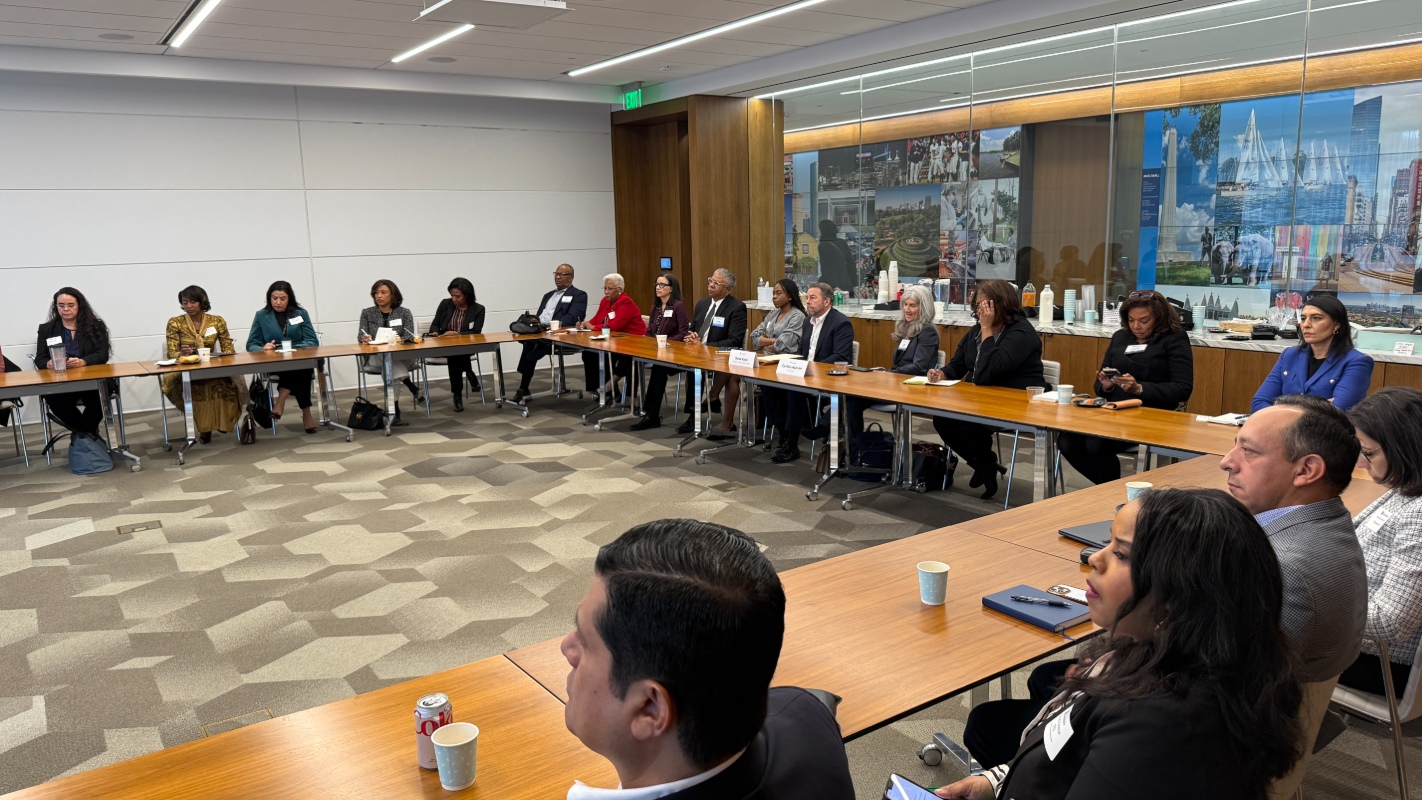3 Actions for Companies Developing Supplier Diversity Programs
Published Sep 07, 2023 by Brina Morales
Developing and sustaining a successful supplier diversity program requires intentionality, accountability, data, and resources. This was one of the key takeaways from the Greater Houston Partnership’s first interactive program that aims to improve outcomes for Minority Business Enterprises. Improving outcomes for Minority Business Enterprises is one of the two priorities of One Houston Together alongside talent advancement and board representation for people of color.
The Partnership hosted its first Supplier Diversity Innovation Lab designed for members responsible for purchasing, supplier diversity and supply chain. Attendees represented seven industries including administrative and support services, energy, health care and life sciences, higher education, manufacturing, professional services, and real estate.
Partnership Executive Partner JPMorgan Chase shared how the firm is harnessing its business, policy, philanthropy, and data expertise to reduce the racial wealth gap in Black, Hispanic, and Latino communities through its Global Supplier Diversity program. The company also shared tactics and best practices that help them meet business goals and promote economic growth.
Featured presenters Jim Flynn, Executive Director of Global Supplier Diversity at JPMorgan, and Nancy Minchillo, Vice President of Global Supplier Diversity at JPMorgan Chase, shared three key actions for companies at the early stage of developing supplier diversity programs.
Understand Your Data
“You need to know who you’re working with and what you’re buying,” Minchillo said. She encourages companies to dive deep into the data to allow for greater alignment with business goals and expectations. According to Minchillo, companies should understand their suppliers, capabilities, spend and whether there is room for growth.
Incorporate a “Now, Near and Far” Strategy
One of the strategies JPMorgan’s Global Supplier Diversity team applies is identifying what it can do for MBEs depending on the MBEs’ needs and their stage of growth. Companies looking to increase their spend with MBEs should focus on immediate, near-term and long-term goals as well as on the company’s growth plan to ensure that goals are achieved for both the company and the MBE.
Flynn said increasing diverse spend should be a “multiprong diverse approach” that partners with procurement divisions to ensure a pipeline of prospects.
Be Intentional and Deliberate
Incorporating a business partner diversity strategy versus the traditional supplier diversity approach has also been key for JPMorgan’s success. The business partner diversity strategy allows for a more intentional and holistic approach to a supplier diversity program.
Flynn and Minchillo reminded Partnership members that success does not happen overnight when it comes to starting or expanding a program to grow spend with MBEs. Change happens gradually but it does happen, and JPMorgan Chase provides a roadmap that can help other Partnership members chart their course.
Learn more about the Partnership’s supplier diversity efforts by contacting Damean Townsend, Senior Director of Supplier Diversity.
 The Houston Report
The Houston Report




















